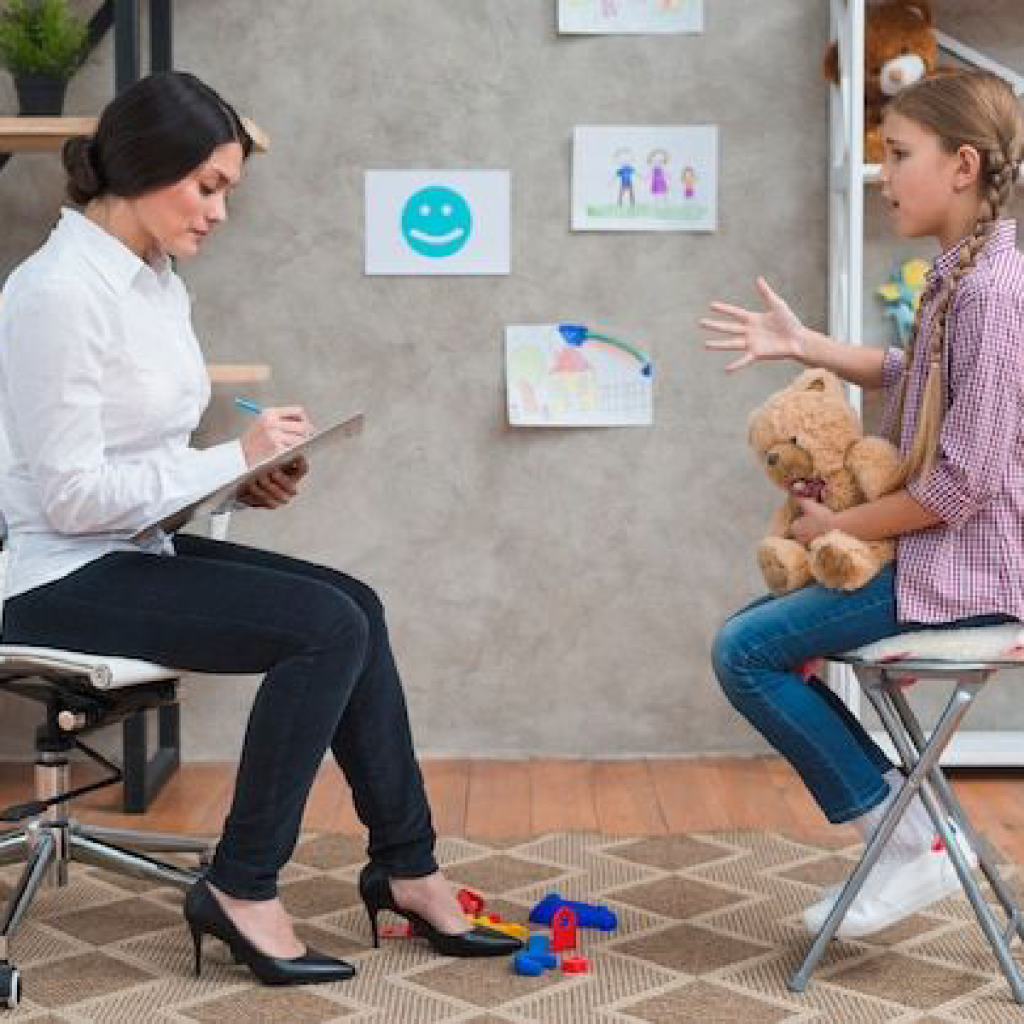Discover effective strategies and techniques for handling defiance in the home.
How to Handle Defiance in the Home
Are you starting to feel like a commander of a rebellious army rather than a parent? Are you constantly facing defiance from your little ones? Fear not, dear parent, for I am here to guide you on your quest to handle defiance in the home! In this article, we will delve into the mysteries of child defiance, unravel the psychology behind it, and equip you with strategies to conquer this ordeal. So, gear up and let’s embark on this parenting adventure together!

Understanding Defiance in Children
Before we march forward, let’s take a moment to understand the peculiar phenomenon known as child defiance. Children, bless their little hearts, sometimes exhibit behavior that makes us want to pull our hair out. But fear not, for defiance is merely a stage in their development. It’s their way of asserting their independence and testing the boundaries of their influence. It may be frustrating, but it’s actually a sign that your child is growing and learning.
When we delve into the psychology behind defiant behavior, we uncover a fascinating world of emotions, cognitive development, and social influence. Child defiance is not just stubbornness. It’s an intricate dance of various factors that shape a child’s behavior. For instance, children who display defiant behavior often have difficulty regulating their emotions and struggle with impulse control. This struggle can manifest itself in acts of defiance as a way for them to express their frustration or assert their autonomy.
Moreover, external factors can play a significant role in the development of defiant behavior. Inconsistent parenting or a lack of clear boundaries can contribute to a child’s defiance. When children receive mixed messages or are unsure of the limits set for them, they may resort to defiant behavior as a way to test those boundaries and seek clarity. Understanding these underlying factors can help us tailor our strategies and responses to effectively address and manage defiant behavior.
The Psychology Behind Defiant Behavior
Child defiance is not just stubbornness. It’s an intricate dance of emotions, cognitive development, and social influence. Children who display defiant behavior often have difficulty regulating their emotions and struggle with impulse control. Additionally, external factors, such as inconsistent parenting or a lack of clear boundaries, can contribute to the development of defiant behavior. Understanding the psychology behind it can help us tailor our strategies and responses.
When it comes to the psychology behind defiant behavior, there are various theories and perspectives that shed light on this complex phenomenon. Some psychologists believe that defiance in children can be attributed to their desire for autonomy and independence. As children grow and develop, they naturally seek to establish their own identity and assert their individuality. Defiant behavior can be seen as a manifestation of this innate drive, as children test the boundaries and limits set by their caregivers.
Furthermore, cognitive development plays a crucial role in understanding defiant behavior. As children’s cognitive abilities develop, they gain a better understanding of cause and effect, as well as the consequences of their actions. This newfound knowledge can lead to acts of defiance as children experiment with their newfound power and test the reactions of those around them.
Common Triggers for Defiant Behavior
Defiance doesn’t just come out of nowhere, like a surprising plot twist in a movie. There are specific triggers that can ignite the flames of defiance in our little ones. These triggers vary from child to child, but some common culprits include tiredness, hunger, feeling misunderstood, and boredom. By identifying the triggers that set off your child’s defiant behavior, you can anticipate and address them effectively.
Tiredness, for example, can significantly impact a child’s behavior. When children are tired, they may become more irritable and less able to regulate their emotions, making them more prone to defiant behavior. Similarly, hunger can have a similar effect, as low blood sugar levels can lead to mood swings and increased irritability.
Feeling misunderstood is another trigger that can fuel defiant behavior. Children, like adults, want to be heard and understood. When they feel like their thoughts and feelings are not being acknowledged or validated, they may resort to defiant behavior as a way to express their frustration and gain attention.
Boredom is yet another common trigger for defiant behavior. When children are not engaged or stimulated, they may seek out ways to entertain themselves, even if it means engaging in defiant acts. Providing children with stimulating activities and opportunities for creativity can help alleviate boredom and reduce the likelihood of defiant behavior.
By being aware of these common triggers and actively addressing them, parents and caregivers can create an environment that minimizes the occurrence of defiant behavior and promotes healthy emotional and behavioral development.
Strategies for Managing Defiance
Now that we have cracked the code of defiance, it’s time to unveil the strategies that will help you regain control of your household and restore peace and harmony. These nifty techniques will empower you to handle defiance like a boss, all while maintaining a loving and nurturing environment for your child.
Defiance, ah, the age-old challenge that parents face. It can feel like you’re navigating through a treacherous sea, but fear not! With the right strategies, you can steer your ship towards calmer waters. Let’s dive deeper into these strategies and explore how they can transform your parenting journey.
Setting Clear Boundaries and Expectations
Boundaries are like the guiding stars that keep the universe of your home in order. Clearly communicate your expectations to your child, and set boundaries that are age-appropriate and reasonable. Remember, consistency is key. By establishing consistent boundaries, your child will know where the lines are drawn, making it easier for them to navigate their way through life.
Imagine your home as a well-structured castle, with each room representing a different aspect of your child’s life. The boundaries you set act as the walls, protecting and guiding them. Just like a castle, your child needs a strong foundation to thrive. By setting clear boundaries and expectations, you provide them with the structure they need to grow and develop.
Positive Reinforcement Techniques
Who said parenting couldn’t be a positive experience? Positive reinforcement is one of the secret weapons in your parenting arsenal. Catch your child being good and shower them with praise, encouragement, and rewards. Celebrate their efforts and achievements, no matter how small. This will create a positive atmosphere in your home and motivate your child to exhibit more desirable behaviors.
Think of positive reinforcement as a magical potion that transforms your child’s behavior. By acknowledging their positive actions, you fuel their self-esteem and confidence. It’s like a ripple effect, spreading positivity throughout your home. Remember, every small step forward is a victory worth celebrating!
Dealing with Defiance in a Calm Manner
When faced with defiance, it can be tempting to let your inner Hulk loose. But remember, patience is the virtue of the brave. Stay calm, take a deep breath, and respond to defiant behavior in a calm and collected manner. By remaining composed, you model self-control and teach your child the importance of managing their emotions.
Picture yourself as a serene lake, reflecting the calmness within. When your child’s defiance creates ripples, be the steady force that brings back tranquility. By responding calmly, you create a safe space for your child to express themselves without fear of judgment or punishment. In this space, you can have open and honest conversations, helping your child understand the reasons behind their defiance.
Remember, managing defiance is a journey, not a destination. Each day brings new challenges and opportunities for growth. With these strategies in your parenting toolbox, you are equipped to navigate the twists and turns of defiance with grace and compassion. So, embrace the adventure and watch as your household transforms into a haven of love and understanding.
Communication Techniques to Address Defiance
When it comes to handling defiance, communication is your most powerful weapon. By developing effective communication techniques, you can defuse tense situations and resolve conflicts in a peaceful and constructive manner.
The Importance of Active Listening
Listening is not just a passive exercise; it’s an art form. Actively listen to your child, giving them your undivided attention. Validate their feelings and let them know that their voice matters. By being attentive, you create a safe space for your child to express their emotions and concerns. This can go a long way in reducing defiance and improving your relationship.
Expressing Your Feelings Effectively
Communication is a two-way street. Expressing your feelings effectively can help your child understand the impact of their behavior on others. Use “I” statements to express how their actions make you feel. For example, say, “I feel upset when you don’t listen to me,” instead of blaming them. This approach fosters empathy and helps your child develop emotional intelligence.
Encouraging Open Dialogue
Create an environment that encourages open dialogue and fosters trust. Encourage your child to express their thoughts and concerns without fear of judgment or punishment. By promoting open communication, you show your child that their perspective is valued, which can significantly reduce defiance and improve cooperation.
The Role of Consistency in Handling Defiance
Consistency is like the glue that holds the bricks of discipline together. It plays a vital role in handling defiance effectively, and its impact extends far beyond the immediate situation.
Maintaining Consistent Rules and Consequences
In the realm of parenting, consistency reigns supreme. Establish clear rules and consequences and stick to them like a superhero to their cape. Ensure that everyone in the household is on the same page and enforces the rules consistently. This reduces confusion, increases predictability, and reinforces the boundaries you have set.
The Impact of Consistent Parental Behavior
Children are incredibly perceptive and keen observers. Your behavior sets the blueprint for theirs. By demonstrating consistency in your own actions and responses, you teach your child the importance of consistency and guide them towards developing self-discipline and respect for rules.
Seeking Professional Help for Defiant Behavior
When the task of handling defiance feels like an insurmountable mountain, it’s okay to seek professional guidance. Remember, you don’t have to face this challenge alone.

When to Consult a Child Psychologist
If your child’s defiance is persistent, severe, or interfering with their daily life, it may be beneficial to consult a child psychologist. These experts can help identify any underlying issues and provide you with tailored strategies to manage and address defiant behavior effectively.
The Benefits of Family Therapy
Family therapy can be a game-changer when it comes to tackling defiance. It provides a safe space for all family members to communicate openly, understand each other’s perspectives, and work together towards resolving conflicts. Through family therapy, you can strengthen your relationships, improve communication skills, and create a harmonious home environment.
Dear parent, take heart, for you are not alone in this battle against defiance. Armed with these strategies and a playful mindset, you are well-equipped to handle whatever challenges come your way. Remember, handling defiance is not just about discipline; it’s about nurturing your child’s development and fostering a loving and supportive home. So, go forth and conquer, brave parent, for you have the power to bring peace and harmony back into your home!



